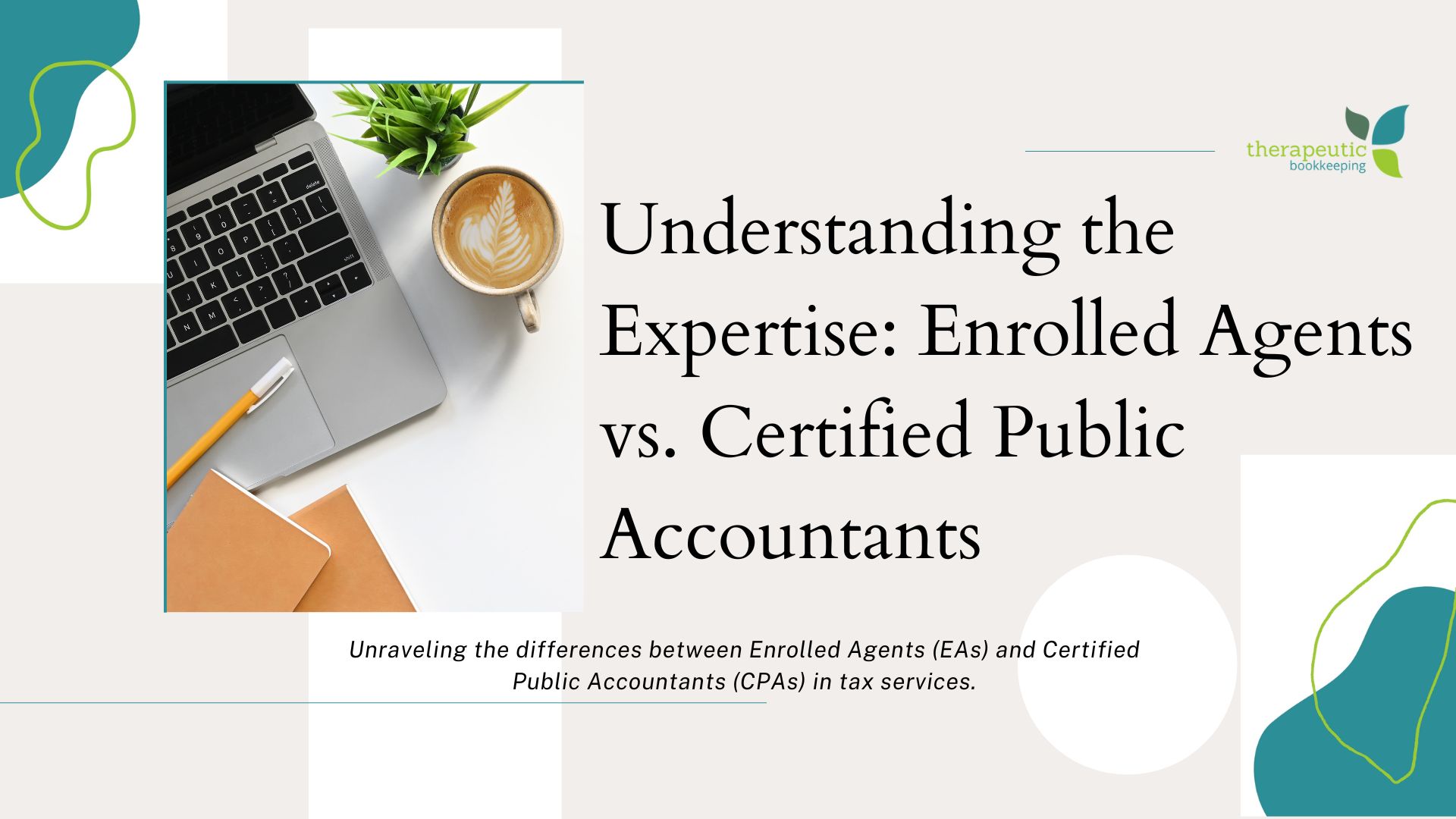
Understanding the Expertise: Enrolled Agents vs. Certified Public Accountants
Tax season often prompts questions about the qualifications and capabilities of tax professionals. In this landscape, two prominent designations emerge: Enrolled Agents (EAs) and Certified Public Accountants (CPAs). Understanding the differences between these professionals is crucial to making informed decisions when seeking tax services.
The Enrolled Agent (EA)
An Enrolled Agent is a tax specialist authorized by the U.S. Department of the Treasury to represent taxpayers before the Internal Revenue Service (IRS). Their expertise encompasses a broad spectrum of tax-related matters. Here’s a breakdown of what an EA brings to the table:
- IRS Authorization: EAs undergo a rigorous examination process administered by the IRS. This includes taxation and representation practices, ensuring their comprehensive understanding of the U.S. tax code.
- Tax Expertise: EAs specialize in tax-related issues, ranging from preparing tax returns for individuals and businesses to offering guidance on complex tax matters. Their focus lies solely within the tax domain, making them specialists in this field.
- IRS Representation: EAs can represent clients in front of the IRS for audits, collections, and appeals. Their knowledge extends to navigating IRS procedures and advocating for clients’ interests effectively.
The Certified Public Accountant (CPA)
Certified Public Accountants, on the other hand, possess a broader scope of expertise that includes accounting, auditing, and taxation. While they are qualified to offer tax services, their focus is not solely on taxation. Here’s what distinguishes CPAs:
- Versatility: CPAs are skilled in various financial areas beyond taxation. They handle accounting, financial planning, auditing, and more. Tax services are part of their repertoire, but they may not specialize exclusively in this area.
- Professional Certification: CPAs must pass the CPA exam and meet specific state requirements to earn their license. Their education and training cover a range of financial disciplines, giving them a holistic understanding of business and finance.
Understanding the Difference
When it comes to seeking tax-related services, understanding these distinctions is pivotal:
- Specialization: EAs are specialists in tax matters, dedicating their expertise solely to the complexities of the tax code and its application. Their deep understanding of tax law enables them to provide targeted advice and support.
- Representation: EAs are uniquely qualified to represent clients before the IRS, making them invaluable in cases of audits, appeals, and negotiations with tax authorities.
- Holistic Approach: CPAs offer a broader range of financial services beyond taxation, making them a go-to option for businesses requiring diverse financial expertise.
Conclusion
Both EAs and CPAs bring valuable skills to the table, but their areas of expertise differ. EAs shine in the realm of taxation, offering specialized knowledge and representation before the IRS. CPAs, with their diverse financial skills, cater to a broader spectrum of financial needs.
Choosing the right professional depends on the specific requirements of an individual or business. Recognizing the unique strengths of each designation ensures that clients receive tailored and comprehensive financial guidance.
When seeking tax-related assistance, understanding these differences empowers clients to make informed decisions and leverage the expertise that best suits their needs.








